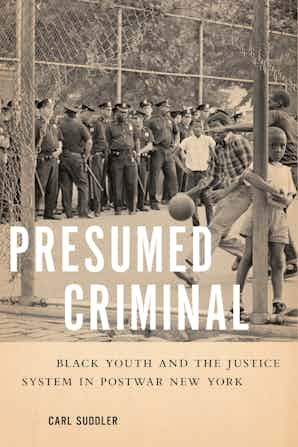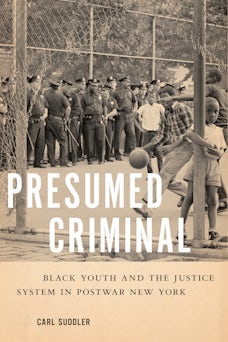Marni Davis (PhD ’06) co-authored an article in The History Teacher on how to teach students about the importance of the footnote. In the piece, which is co-authored with Jill E. Anderson, they write: “Footnotes offer a crucial window into historians’ methods of building an argument and using evidence.” Davis is a historian of ethnicity and immigration in the United States and Associate Professor at Georgia State University. Read the full article, “Follow the Footnote.”
Category / Publications
Dr. Astrid M. Eckert Publishes New Book: ‘West Germany and the Iron Curtain’

Congratulations to Dr. Astrid M. Eckert on the publication of her book West Germany and the Iron Curtain: Environment, Economy, and Culture in the Borderlands with Oxford University Press. The book takes a fresh look at the history of Cold War Germany and the German reunification process from the spatial perspective of the West German borderlands that emerged along the volatile inter-German border after 1945. It also provides the first environmental history of the Iron Curtain. Dr. Eckert is Associate Professor of History.
Alumni Update: Alexander Gouzoules (C’08) Publishes “The Diverging Right(s) to Bear Arms”
Alexander Gouzoules graduated from Emory College in 2008 and subsequently attended Harvard Law School. He recently published an article, “The Diverging Right(s) to Bear Arms: Private Armament and the Second and Fourteenth Amendments in Historical Context,” in the University of Alabama Civil Rights and Civil Liberties Law Review (Vol. 10, 2019). The blog Second Thoughts from Duke University recently featured Gouzoules’ piece in their Scholarship Spotlight series. Read part of their summary below, along with the full article here. Gouzoules is an attorney in New York City.
“The main thrust of the article is to emphasize and explore the nature and scale of change in how private armament was understood between 1791, when the Second Amendment was ratified, and 1868, when the Fourteenth Amendment (which makes the Second Amendment applicable to the states) was ratified. To over-simplify a bit: While private arms-bearing to deter the tyranny of the standing federal army might have made sense in the 1790s, the situation was entirely different by the late 1860s. In showing as much, Gouzoules deepens (and credits) an argument that Akhil Amar made more than a decade before Heller. Gouzoules’ target is not simply the Second Amendment, however, but originalism itself: ‘These radically different understandings can only be reconciled by defining the right to bear arms at such a high level of generality as to overlook the actual intentions of both amendments’ framers, thus undermining the project of originalism to which these contemporary decisions were ostensibly committed.’
Daniel LaChance in ‘Process’: “Capital Punishment and the Battle for America’s Soul”
Associate Professor of History Dr. Daniel LaChance recently authored a piece for Process: a blog for american history. Entitled “Capital Punishment and the Battle for America’s Soul,” the article examines official and public stances on capital punishment, especially in the context of cultural wars of the late twentieth and early twenty-first centuries. LaChance, who is Andrew W. Mellon Faculty Fellow in Law and the Humanities, authored Executing Freedom: The Cultural Life of Capital Punishment in the United States with the University of Chicago Press in 2016. Read an excerpt of the Process piece below along with the full article here.
“These days, support for capital punishment is concentrated among whites, Protestants, and Republicans—key demographic constituencies of the conservative side of the late twentieth century culture wars. This may explain the unusual zeal with which the Trump administration has tried to prop up capital punishment despite its declining popularity. The federal government has not executed anyone since 2002, yet Attorney General William Barr recently announced that the Department of Justice would set December 2019 execution dates for five federal death row inmates…
“Given the symbolic value that the death penalty carried in the late twentieth century, Trump’s embrace of capital punishment is politically shrewd. His unapologetic enthusiasm for state killing plays to a white, Protestant, Republican base whose support for capital punishment has not faltered even as crime rates have fallen, perhaps because they see the death penalty as a positive good rather than a necessary evil. If that base shares the sensibility of their culture war forebears, support for the death penalty is not only a tool for controlling crime, but also an expression of allegiance to values—personal responsibility, the sacredness of innocent life, and the firmness of a nation’s convictions—that they feel have degraded in the United States since the 1960s. Trump’s defiant embrace of the death penalty is perhaps a sign to them that their nation is on its way to becoming great again.”
WABE’s ‘Closer Look’ Features Dr. Carl Suddler

Assistant Professor Carl Suddler was recently interviewed by Rose Scott, host of the WABE (one of Atlanta’s NPR affiliates) show “Closer Look.” Suddler discussed his new book, Presumed Criminal: Black Youth and the Justice System in Postwar New York (NYU Press, 2019). Listen to the full show, “Closer Look: The History of Black Youth & The Criminal Justice System,” and check out the recent new faculty profile of Dr. Suddler.
Suddler’s New Book, ‘Presumed Criminal,’ Featured by ‘Diverse Issues in Higher Education’

Assistant Professor of History Dr. Carl Suddler was recently interviewed by Diverse Issues in Higher Education about his new book, Presumed Criminal: Black Youth and the Justice System in Postwar New York. New York University Press published the book earlier this year. Lamont Jones wrote the piece for Diverse, entitled “Emory History Professor’s New Book Probes Black Youth, Criminal Justice.” Read an excerpt below, in which Suddler discusses the book’s cover photo, along with the full article here.
What’s the story behind that compelling cover photo?
[Suddler] “I love the cover image for several reasons. It’s a photo from 1966 Brooklyn. The patrolmen in the backdrop are amongst the 1,500 that were assigned to the neighborhood and, what I often like to point out, is the ‘diversity’ amongst the ranks. There is no information related to the ages of the boys in the image, but you can gather that they are all relatively young, especially the youngster peering out into the camera from the hole in the fence. At its core, however, I feel this image captures the crux of the book – and the heart of the problem today – and that is how normal the over-policing of Black and Brown communities has become. The boys continue to play ball; the officers continue to stand pat. Their proximity does not appear to phase the youngsters. However, we all know too well that increased interactions with the police often lead to increased arrest rates, arrest rates dictate ‘crime’ statistics, and as a country – because we have yet to figure out a better alternative – we rely on crime statistics to make sense of who is ‘presumed criminal.’ Whether or not they committed a crime becomes moot.”
Dr. Lisa Greenwald (PhD, ’96) Discusses ‘Daughters of 1968’ on New Books Network Podcast
Dr. Lisa Greenwald, an alumna of the History graduate program, was recently interviewed on the podcast of the New Books Network. Earlier this year Greenwald published Daughters of 1968: Redefining French Feminism and the Women’s Liberation Movement with the University of Nebraska Press. She was interviewed by Beth Mauldin, an Associate Professor of French at Georgia Gwinnett College in Lawrenceville, Georgia. Greenwald teaches history at Stuyvesant High School in New York City. Go to the New Books Network website to listen to the podcast.
‘SaportaReport’ Features New Works by Carl Suddler and Colson Whitehead

SaportaReport recently featured two new books about black youth experiences in the justice system published by History Department Assistant Professor Carl Suddler and Pulitzer Prize-winning author Colson Whitehead, respectively. Managing Editor David Pendered wrote the piece, titled “Justice for black youths, reparations in Atlanta’s conversations this summer.” Pendered discusses Suddler’s Presumed Criminal: Black Youth and the Justice System in Postwar New York, which was published by NYU press last month. Suddler offers a reading of Whitehead’s The Nickel Boys, which was also published last month. Whitehead recently presented at the Atlanta History Center. Read the full piece in SaportaReport here.
Dr. Carl Suddler Places ‘Central Park Five’ in Historical Context for the ‘AJC’

Incoming Assistant Professor of History Carl Suddler recently contributed to an article in the Atlanta Journal-Constitution, “Yusef Salaam of Central Park Five: ‘Born with a target on our backs.'” Shelia Poole wrote the piece, which centers on Yusuf Salaam, one of the so-called Central Park Five. Read the excerpt that quotes Dr. Suddler below as well as the full article.
“I think when we see these cases, especially wrongful convictions, it does kind of beg the question just how many of these cases have happened over time,” said Carl Suddler, author of “Presumed Criminal: Black Youth and the Justice System in Postwar New York” and professor of history, who will join the faculty at Emory University this fall. “In the United States, we do not have a justice system, we have a legal system. We have a system that followed the letter of the law, not necessarily fairness.”
Sean Andrew Wempe (PhD, 2015) Publishes ‘Revenants of the German Empire’ with Oxford UP
In June of 2019 Oxford University Press will publish the first book of Sean Andrew Wempe, a 2015 doctoral program alumnus. Wempe’s monograph is entitled Revenants of the German Empire: Colonial Germans, Imperialism, and the League of Nations. Benedikt Stuchtey, Professor at Philipps-University Marburg, Germany, describes Revenants as a “timely and meticulously researched book based on a wide array of archival material.” Wempe is currently Assistant Professor of Modern European History at California State University–Bakersfield. Read the publisher’s description of the book below.
In 1919 the Treaty of Versailles stripped Germany of its overseas colonies. This sudden transition to a post-colonial nation left the men and women invested in German imperialism to rebuild their status on the international stage. Remnants of an earlier era, these Kolonialdeutsche (Colonial Germans) exploited any opportunities they could to recover, renovate, and market their understandings of German and European colonial aims in order to reestablish themselves as “experts” and “fellow civilizers” in discourses on nationalism and imperialism.
Revenants of the German Empire: Colonial Germans, Imperialism, and the League of Nations tracks the difficulties this diverse group of Colonial Germans encountered while they adjusted to their new circumstances, as repatriates to Weimar Germany or as subjects of the War’s victors in the new African Mandates. Faced with novel systems of international law, Colonial Germans re-situated their notions of imperial power and group identity to fit in a world of colonial empires that were not their own. The book examines how former colonial officials, settlers, and colonial lobbies made use of the League of Nations framework to influence diplomatic flashpoints including the Naturalization Controversy in Southwest Africa, the Locarno Conference, and the Permanent Mandates Commission from 1927-1933.
Sean Wempe revises standard historical portrayals of the League of Nations’ form of international governance, German participation in the League, the role of interest groups in international organizations and diplomacy, and liberal imperialism. In analyzing Colonial German investment and participation in interwar liberal internationalism, the project challenges the idea of a direct continuity between Germany’s colonial period and the Nazi era.